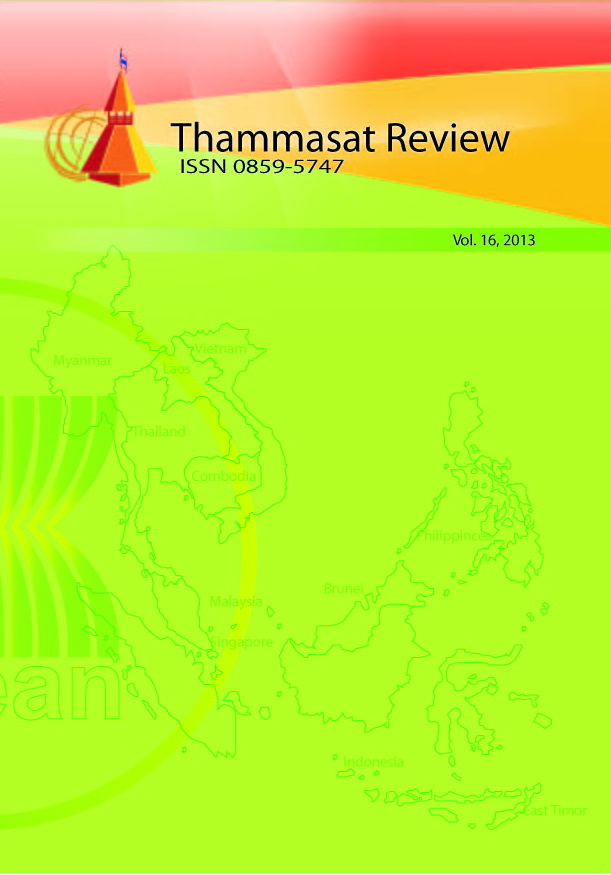The Internationalization of Thailand’s Automotive Industry: A Political Economic Analysis of the Late Developmental State
Abstract
With the rise of globalization, most countries depend on increasing their
competitiveness and building competitive advantages to sustain their economic
development. In this context, it must be determined whether late developmental states
will follow the same patterns used in East Asia (Taiwan, South Korea, Singapore and
Hong Kong) to build their industrial competitiveness. This study also addresses the
manner in which late developmental states create improved investment environments to
attract international capital and facilitate industrial development in the current free trade
global market.
The automotive industry is ranked the fifth largest export industry in Thailand.
In addition, as a car exporter, Thailand ranks the first among ASEAN countries, and
third in Asia overall, with the biggest automobile assembly base in the region. Thailand
is thus the regional center of the East Asian automotive industry, and has earned a
reputation as the “Asian Detroit.” Consequently, Thailand’s automobile industry is a
valuable example of industrial development for late developmental states.
The purpose of this study presents a discussion on the industrial growth in late
developmental states by focusing on a single industry in a single country, namely the
11
Vol. 16, (2013)
automobile industry in Thailand. Thailand lacks a powerful state and stable political
economic situation, and thus cannot control its domestic industrial development. The
internationalization of the automotive industry in Thailand has been a dynamic process.
It began in the 1960s with the “Dependence Development mode,” in which foreign
investments took the lead. After the 1990s, “Neo-liberalism” became dominant, the
country’s industrial policy remained free and open, and cooperation with multinational
industries continued. During this stage, Thailand attempted to integrate itself into the
global industry by employing internationalization of production and marketing.
Although Thailand has not been able to build up its own automotive brands in this
process or change the original structure of the world’s production system, it still
achieved a “later-entrants” advantage and the goal of industrial advancement by
positioning itself appropriately in the international political and economic structure, and
by taking advantage of the prevailing market mechanisms.
Keywords: Thailand’s Automotive Industry, Late Developmental States,
Downloads
How to Cite
Issue
Section
License
The opinions and ideas expressed in all submissions published in Thammasat Review are solely that of the author(s) and do not necessarily reflect that of the editors or the editorial board.
The copyright of all articles including all written content and illustrations belong to Thammasat Review. Any individuals or organisation wishing to publish, reproduce and distribute a particular manuscript must seek permission from the journal first.








